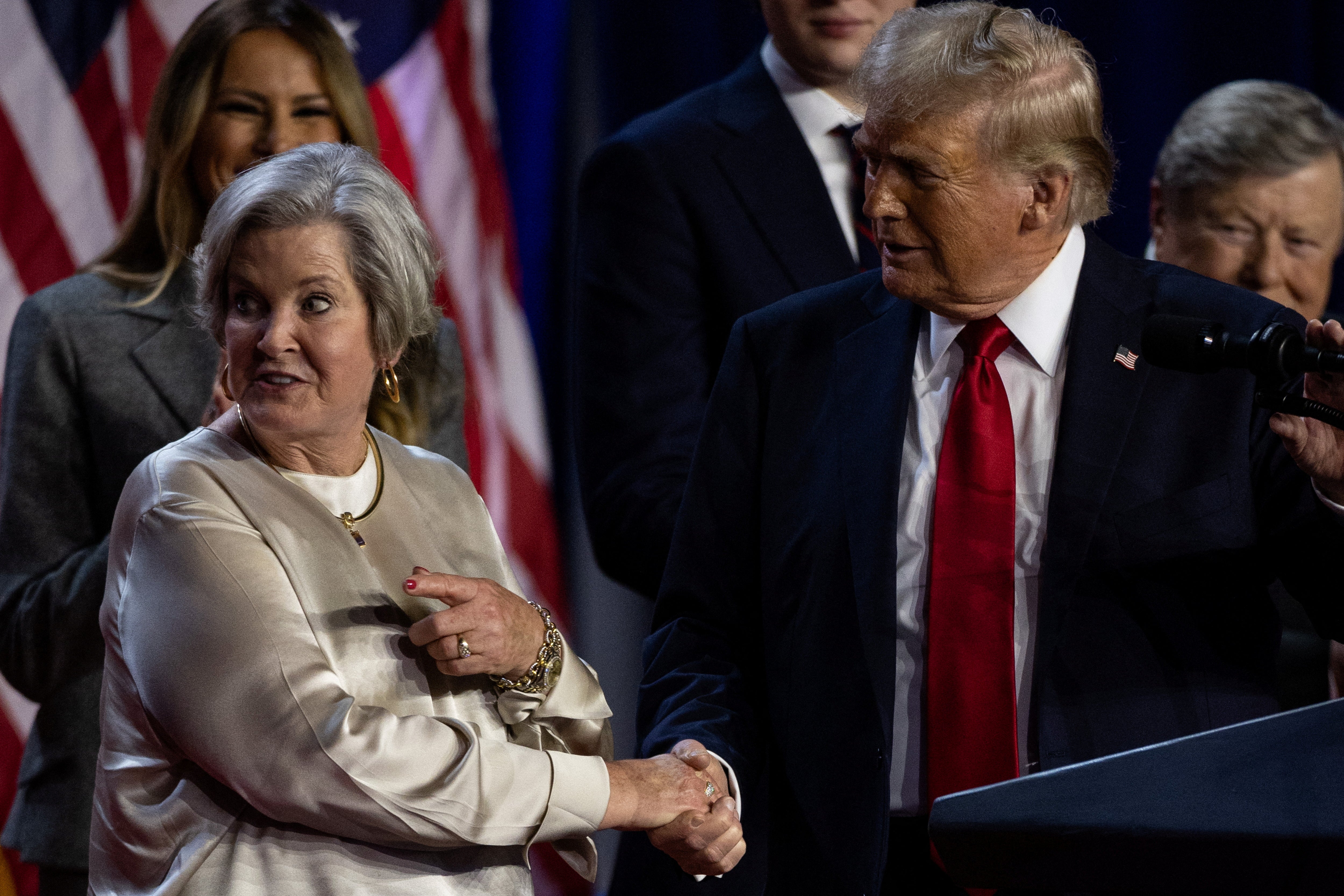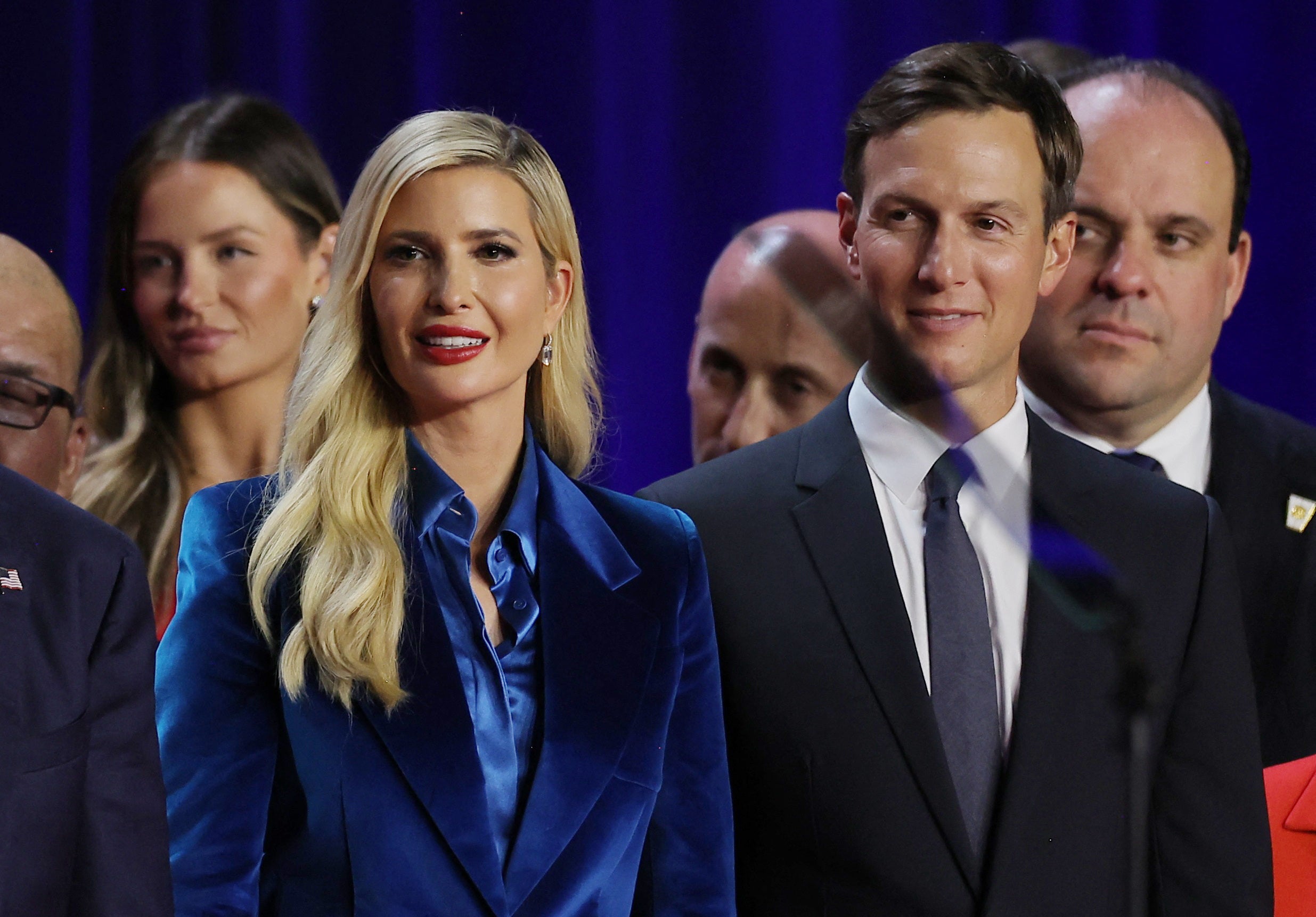The Trump transition has begun — and it’s off to an unorthodox start
Supporters and administration hopefuls have been flocking to Mar-a-Lago in the days since Trump’s win, Andrew Feinberg reports, as the first members of the new White House team are announced


Nearly four years ago as Donald Trump was refusing to acknowledge his 2020 election loss to Joe Biden, then-Secretary of State Mike Pompeo was asked if his department was preparing to engage with the incoming Biden team.
In what appeared to be a tongue-in-cheek acknowledgement of the tensions around the then-president’s lack of commitment to the peaceful transfer of power, he replied: “There will be a smooth transition to a second Trump administration.”
On Wednesday, just hours after media outlets had declared Trump the winner in his bid to be the first president in over a century to serve non-consecutive terms, Pompeo took to X (formerly Twitter) to resurface the clip with an accompanying quip.
“As I was saying,” he wrote.
Days after Trump pulled off one of the most improbable comebacks in American political history by besting Vice President Kamala Harris in both the popular and electoral college vote counts, his transition planning appears to be in full swing — with some Trumpian twists.
Late Wednesday evening, Trump transition chairs Howard Lutnick and Linda McMahon issued a statement to reporters. In it, they said Trump would be “selecting personnel to serve our nation under his leadership and enact policies that make the life of Americans affordable, safe, and secure” in the coming weeks from “a wide array of experts” they’ve assembled for his review.
One day later, Trump’s transition team issued another press release announcing that the president-elect had made his first major staffing decision of his second term — the selection of longtime Republican operative and de facto 2024 campaign manager Susie Wiles to be his White House chief of staff.
Wiles will be the first woman to serve in the White House’s top staff role, one that was largely thankless during Trump’s first term. Over his four years in the White House from 2017 to 2021, Trump cycled through four chiefs of staff, with all but one exiting after trying — and failing — to bring a semblance of order to the freewheeling style preferred by the ex-real estate mogul turned television star turned politician.
He is famous for encouraging, even relishing, internal conflicts and internecine warfare among his closest aides. It’s said that he is as entertained by the infighting as viewers of The Apprentice were before he ended episodes by firing whoever lost the internal competition.
But Wiles, the daughter of legendary NFL broadcaster Pat Summerall and a renowned GOP power player in her own right, isn’t one to embrace the drama. The campaign she ran along with veteran strategist Chris LaCivita was relatively drama-free and leak-averse compared with Trump’s first two presidential efforts.
One Trumpworld veteran who spoke to The Independent on condition of anonymity said the pick is an indicator of the president-elect’s respect for and trust in Wiles, who took over his political operation when he was in the veritable wilderness, reeling from the backlash to January 6th. The source described Wiles as a rare person who has the ability to say “no” to Donald Trump.
The Independent understands that Trump’s selection of Wiles early on was meant to take some of the pressure off him from supporters and office-seekers who’ve come calling in the days since his victory in hopes of bending his ear or securing roles in his new administration.
In theory, this means Wiles — not the president-elect — can be the point person for naming key staff roles and helping to roll out new appointment announcements.
But the transition team Trump has at his disposal isn’t looking much like the one that ushered him into the White House in 2017. That was a chaotic effort compounded by his decision to replace voluminous plans assembled by then-New Jersey governor Chris Christie with a slapdash plan nominally headed up by Mike Pence. In actuality, it became a two-headed hydra of an operation with rival power bases in Jared Kushner, Trump’s son-in-law, and then-incoming White House chief strategist Steve Bannon.

Back then, Trump’s transition team followed precedent and procedure by working with the General Services Administration, the government agency that by law provides incoming administrations with official office space and other resources, including what is needed for incoming administration officials to obtain security clearances and liaise with the myriad federal agencies they will have to staff and supervise at noon on January 20, 2025.
But this time, it appears the Trump team could eschew much of the official support in favor of a privatized model without precedent in modern history.
The initial statement released by transition chairs Lutnick and McMahon referenced “the next steps of Trump Vance 2025 Transition, Inc., a 501(c)(4) organization,” indicating that the new-look Trump team wants to keep the federal government — including the civil servants that are tasked with assisting the transition — away from the people who will soon lead the federal government.
To start, a 501(c)(4) organization, named for the section of the Internal Revenue Code that authorizes such “social welfare” organizations, aren’t required to publicly disclose their donors. And by keeping the transition off of any official government email systems, the Trump team can evade having their emails requested by any Democratic or nonpartisan transparency groups under the Freedom of Information Act.
As of now, the Trump transition hasn’t signed the memoranda of understanding that officially starts the transition process by letting the incoming team interface with the GSA and gain access to “office space, IT equipment, office supplies, fleet vehicles, mail management, and payment of compensation and other expenses” available after an election is conceded.
Although the agency notified the Trump team that it’s eligible for government support on Wednesday, hours after Vice President Kamala Harris conceded the race to the president-elect, White House Press Secretary Karine Jean-Pierre told reporters on Thursday that there’s been no official acceptance of the offer. But she did say that Biden’s chief of staff, Jeff Zients, has “reached out” to the Trump team. She stressed that they would “leave that line of communications open” in hopes of facilitating “an effective, efficient transition of power.”
Yet Trump allies are indicating that the transition may not be so smooth.
Reporting from The New York Times and other outlets has also indicated that Trump and his team are strongly considering skipping the process by which administration officials normally obtain security clearances after FBI background checks.
Instead, Trump aides have reportedly argued for the president-elect to unilaterally grant clearances to top aides based on private background investigations done by a firm contracted by the transition.
Already, Trump-aligned groups such as Stephen Miller’s America First Legal are publicly railing against the FBI and accusing it of illegally leaking information on presidential nominees to congressional staff. The group said in a press release that the Department of Justice-led process “has been and will be weaponized against nominees in any future administration, including the Trump Administration.”
Because security clearances are an executive function, the president can grant anyone a clearance at any level for any reason, even over the objections of the national security professionals who assess whether a given individual can be trusted with the nation’s secrets. And as an elected official, Trump himself is exempt from clearance requirements despite his long and documented history of mishandling and allegedly unlawfully retaining national defense information.
He exercised this unilateral authority during his first term when he ordered his second chief of staff, John Kelly, to grant Kushner, then a White House senior adviser, a permanent “top secret” security clearance after a months-long period during which the real estate scion was only allowed a much lower level “secret” one. Though Kushner had been allocated the “top secret” credential on an interim basis early on in the first Trump administration, that temporary clearance was pulled and replaced with much lower “secret” clearance after national security officials and then-White House counsel Don McGahn raised concerns flagged by the US intelligence community about the president’s son-in-law.
According to The New York Times, Kelly was so disturbed by the move that he authored a contemporaneous memorandum in which he wrote that he’d been directly ordered to grant Kushner the clearance over the objections from both McGahn and the CIA.
A former White House security adviser, Tricia Newbold, was similarly troubled by decisions around clearances in the early days of Trump’s first term — so much so that she went to Congress with her concerns seeking whistleblower status. She told Democrats on the House Oversight Committee that numerous Trump appointees were denied clearances because of foreign influence concerns, conflicts of interest, financial issues, questionable conduct and even illicit drug use.
It’s not fully clear what criteria the new Trump administration might use to grant access to sensitive information this time around if not those used by the FBI.
Usually, appointees are screened for foreign ties, potential conflicts of interest, and susceptibility to blackmail. But given Trump’s well-documented obsession with loyalty, it’s very possible that fealty to the new administration — not the United States itself — could become an important metric.
To that end, Trump administration hopefuls are already flocking to his Mar-a-Lago property in Florida, where he and his team are making their plans, in hopes of kissing the ring and securing the new president’s favor.
Join our commenting forum
Join thought-provoking conversations, follow other Independent readers and see their replies
Comments
Bookmark popover
Removed from bookmarks